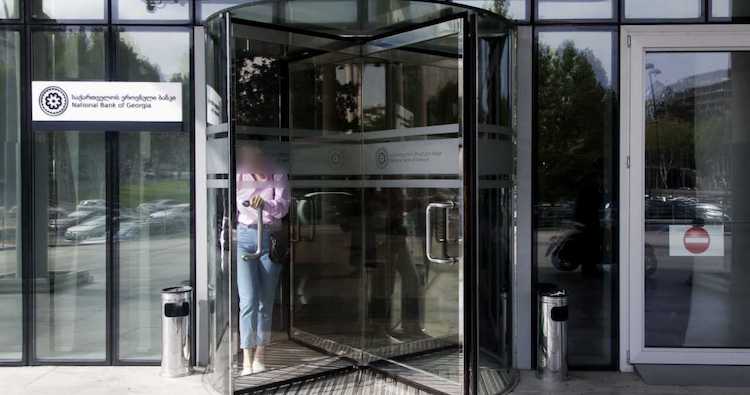National Bank increases limit of non-hedged foreign currency loans to $149,545

These circumstances created a “desirable prerequisite” for increasing the limit of foreign currency loans with “minimal impact” on the economy, the institution added. Photo: Nino Alavidze/Agenda.ge
The National Bank of Georgia’s Financial Stability Committee on Monday said it had increased the limit of non-hedged foreign currency loans from ₾300,000 ($112,159) to ₾400,000 ($149,545).
The release said the domestic financial system maintained its stability and continued lending to the economy, with the country’s banks maintaining “healthy” capital and liquidity indicators and credit activity at a “sustainable level”.
The Bank noted the annual growth of loans, excluding the effect of the exchange rate, amounted to 16.4 percent, which was largely due to the growth of business loans.
The body said it “actively” continued to work to reduce structural risks caused by a high level of financial dollarisation, and added dollarisation and related risks were still a “significant challenge” for the financial sector despite “positive trends” in recent years.
It said loans denominated in foreign currencies, mostly with variable rates, were accompanied by interest and exchange rate risks, adding these risks were “particularly significant” given a large percentage of unhedged borrowers in foreign currencies, increased volatility of regional currency exchange rates, and “global financial conditions”.
It added the Bank had increased the limit of unhedged foreign currency loans from ₾200,000 ($74,772) to ₾300,000 ($112,159) starting in January to mitigate these risks, and “actively” continued to work on the “gradual increase” of the limit considering the macroeconomic environment and risks.
It added the current macroeconomic and macrofinancial environment created “favourable” conditions for taking next steps of the long-term dedollarisation plan, adding loans in national currency becomes “even more attractive” for citizens and businesses as a result of the progressive drop of the refinancing rate after lower inflation, which it said boosted credit activity.
The body also said funding growth was “stable” and banks had enough liquidity to uninterruptedly issue credit in national currency, and noted demand for foreign currency loans had decreased on the backdrop of globally tightened financial conditions.
These circumstances created a “desirable prerequisite” for increasing the limit of foreign currency loans with “minimal impact” on the economy, the institution added.
 Tweet
Tweet  Share
Share


